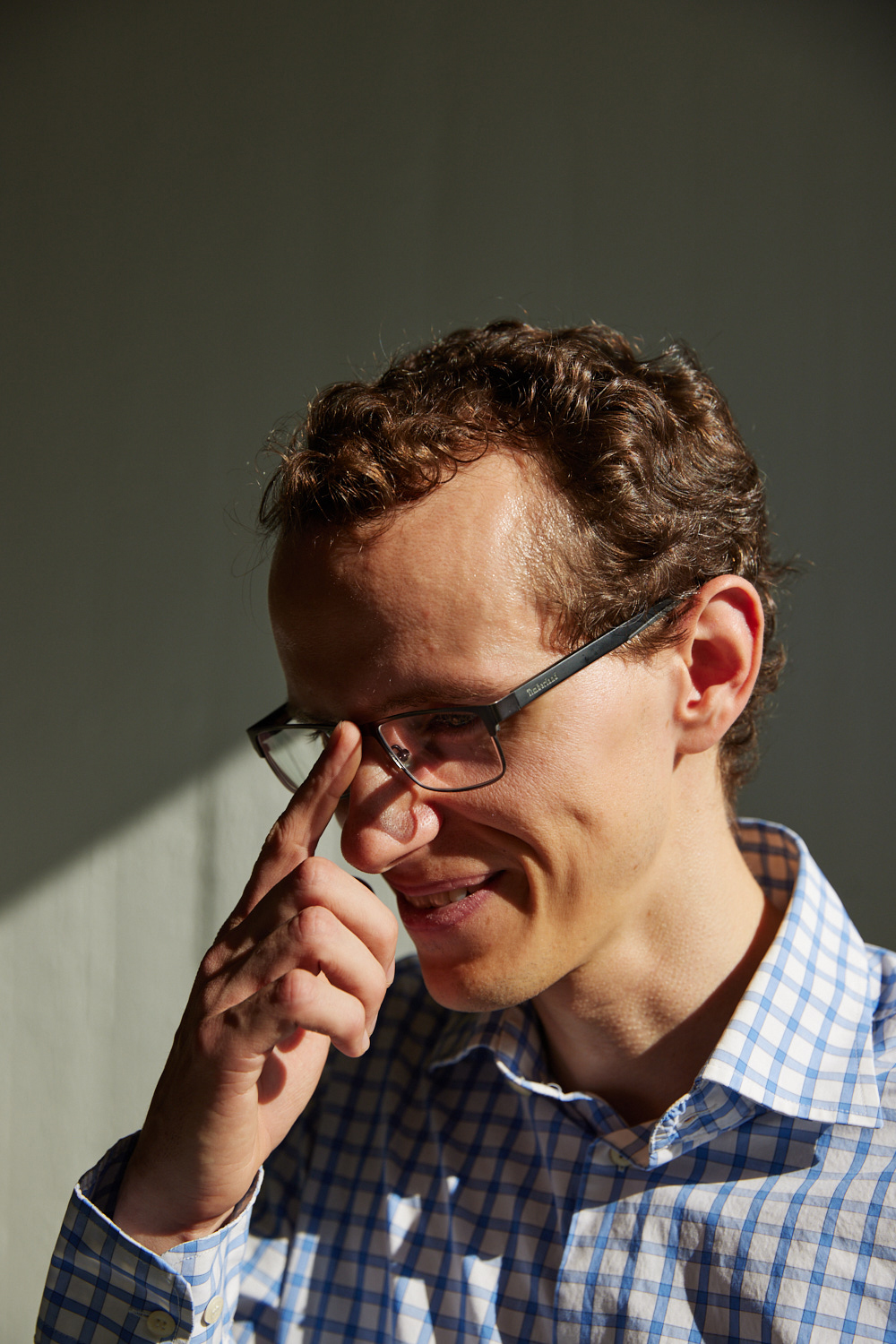The careful daredevil
Benedikt Soja became a world champion last summer. When the young ETH professor is not racing down steep mountain trails, he is busy surveying the world.

Les Vouillants near Grenoble. The moment the starting gun is fired, 43 men start pedalling like mad. They have 17 kilometres and an 870-metre climb ahead of them: steep, rugged ascents, slippery hairpin bends and narrow forest paths covered with roots and stones – a trail that demands absolutely everything from the competitors, especially as they have to navigate it on their unicycles.
The rider with the red jersey and the number 207 is right at the front from the very start. Elegantly and seemingly without effort, he manoeuvres his one-metre-high unicycle over hill and dale. As the race goes on, he widens the gap between himself and the competition. Finally, after one hour and 14 minutes, he crosses the finish line with a cheer. Benedikt Soja is the new world champion in cross-country unicycling.
Surveying the world
As daring as Vienna-born Benedikt may appear as he races down steep mountain paths on his unicycle, he comes across as calm and composed in our conversation at his office on the Hönggerberg campus. Benedikt has been Assistant Professor of Space Geodesy at the Department of Civil, Environmental and Geomatic Engineering at ETH Zurich since March 2020 and his work involves nothing less than surveying the world.
Together with his team of 15 colleagues, he combines large amounts of data captured by satellites with artificial intelligence to determine the shape, structure and position of the Earth in space. Without these measurements, our navigation systems, for example, wouldn’t be nearly as effective. Benedikt’s analyses also provide an important basis for numerous climate and weather models.
The quest for new challenges
After completing his studies and doctorate in Vienna and holding a postdoctoral position in Potsdam, Benedikt joined NASA in 2016. As a lover of nature, he felt very at home in California and enjoyed riding his unicycle through its mountains and forests. He was soon promoted and even given a permanent position – a dream for many researchers.
But that was not enough for the then 30-year-old. Benedikt is someone who is always looking for new challenges. He wanted to develop his own research programme and applied for a tenure-track position at ETH Zurich, which he was promptly offered.

From researcher to manager
The Austrian found that the move to ETH also signified a change of identity. As a researcher at NASA, he was largely responsible for his own output. As a professor, his success suddenly depends on his colleagues: “Getting tenure is a team effort. Since I get to do less research myself, it’s essential to find good people, trust them and support them.”
Benedikt was 31 when he was offered the position at ETH. His staff, many of them only slightly younger than him, very much appreciate the friendly and open dialogue with their boss: “He treats us as equals, listens closely and wants us to come up with our own solutions,” says his doctoral student Laura Crocetti.
Win or learn
What impresses them most about their boss, however, is his determination and perseverance. Benedikt is skilled at dedicating himself fully to a cause and not giving up. And if something doesn’t work out, he tries to learn from it. “You either win, or you learn,” is how the ETH professor sums up his outlook on life. For him, setbacks such as research proposals being rejected are also opportunities to grow.
Given this perspective, it is hardly surprising that the 33-year-old became unicycling world champion in the summer. He has been pursuing the sport for 11 years, and only started initially because he was no longer able to ride a bike with two wheels due to a hand injury. Hardly any part of his body has remained unscathed during his sporting career. He has broken his shoulder, toes, fingers, elbows and even his hip. But he always bounces back and improves his performance. After all, whatever Benedikt puts his mind to, he gets it right.

The portrait was published in the December issue of ETH's "life" magazine.
To the research group of Professor Benedikt Soja